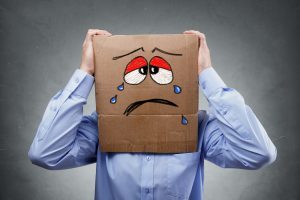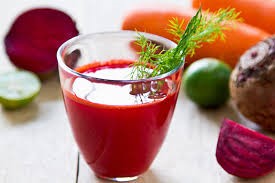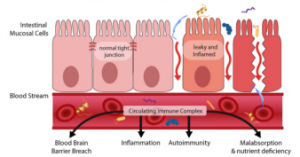 When it comes to mental health everyone thinks that the brain is in charge but in reality it maybe your gut. Even way back in the 1800s it was thought that wastes in your colon could cause toxins that lead to depression.
When it comes to mental health everyone thinks that the brain is in charge but in reality it maybe your gut. Even way back in the 1800s it was thought that wastes in your colon could cause toxins that lead to depression.
Purges to the colon and even bowel surgery were thought of as the cure!
There is in the wall of your gut a nervous system made up of 500 million nerve cells which works both with your brain and independently. This is what is responsible for your “gut instincts”, sending information between the brain and gut affecting your mood. For instance, eating fatty food makes you feel good as the cells in your gut send warm and fuzzy signals to the brain.
So if our gut becomes less than healthy we are in danger of triggering signals to the brain that can alter our behaviour. Without going into scientific detail studies have been done that show altered and high-risk behaviour in mice when the bacteria in the gut are out of balance.
 When you know that there can be around 2kg of bacteria and about 70% of your immune system is located in your gut wall then it is no surprise that an altered balance of bacteria (dysbiosis) or any cause of inflammation in the gut can cause lowered mood, depression, anxiety, panic attacks or other symptoms.
When you know that there can be around 2kg of bacteria and about 70% of your immune system is located in your gut wall then it is no surprise that an altered balance of bacteria (dysbiosis) or any cause of inflammation in the gut can cause lowered mood, depression, anxiety, panic attacks or other symptoms.
The main causes for an imbalance in bacteria are poor diet, additives in food, alcohol, stress, food allergies, drugs (Ibuprofen is a particular culprit) and pesticides and herbicides in our food.
Depression and anxiety of course do not have a single underlying cause and many factors come into play. Scientists believe it is due to in an imbalance in the brain’s level of neurotransmitters- the brains chemical messengers and this is where it can be linked to poor gut health. Depression is a devastating illness that effects a person’s life on a physical, mental and emotional level and all these areas need to be addressed. It influences self-esteem and the sufferer’s perception of other people and can range in intensity from melancholy to despondency and thoughts of suicide.
What can you do if you are suffering with anxiety or depression?
So if you are suffering with anxiety or depression how can you help yourself? If you are already taking anti-depressants it is best to always consult a qualified Medical Herbalist like myself (Melanie at Cliffs Chiro) or Nutritionist before taking supplements. Taking a course of probiotics is a good place to start to try and recolonize the gut with some good bacteria. Try eliminating wheat from your diet completely for two weeks and see if symptoms improve. People with anxiety should try calcium, magnesium and vitamin B complex, all of which support a healthy nervous system. St John’s wort may be a safe alternative to prescription drugs and for people over 50 gingko biloba combats depression more effectively than prescription drugs.
Women can be particularly susceptible to low levels of tryptophan in the brain, this this reduces the brain’s production of the neurotransmitter serotonin which helps regulate mood. Eating turkey, salmon and some milk products contain tryptophan and may help increase serotonin production.
In fact studies have shown that taking milk protein hydrolysate reduces anxiety symptoms and is even more effective when Theanine is added the chemical which gives you that ‘aaah lovely cup of tea” feeling.
What else can you do?
Exercise regularly, this is one of the best natural anti-depressants. Avoid alcohol, tobacco and excessive caffeine. Seek counselling, there are free services in the Southend-On Sea area. Talk to us, your chiropractor will be ready to listen and will be able to help you choose supplements that are the most appropriate for you. If you think you have a gut issue or more serious depression please ask for an appointment with Melanie Cutting who is also a Medical Herbalist with a special interest in nutrition.

 How many of us after Christmas couldn’t do with helping our bodies to overcome the toxic overload and giving them a spring clean in the New Year?
How many of us after Christmas couldn’t do with helping our bodies to overcome the toxic overload and giving them a spring clean in the New Year? Day 1 – 3
Day 1 – 3

